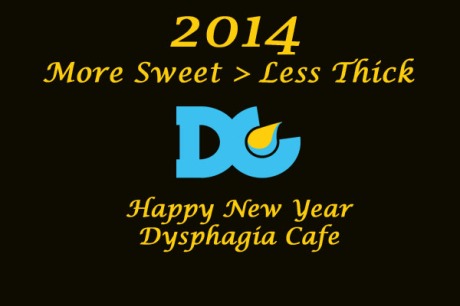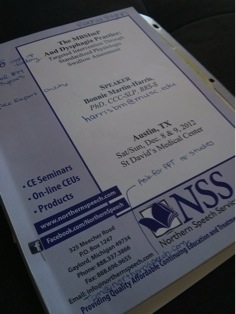Dear Class of 2014,
You have finally made it. Well, I know for a handful of you, it still means one last class that had to linger over the summer, but you finally did it. Many have the choice to work more within the medical confines of Speech-Language Pathology or to work in clinics and schools. I speak, now, to approximately 50% who will choose to work in the medical setting. Of those who want to work in the medical setting, there may be a handful that say, “Get me away from swallowing stuff.” I speak now to those who say “ I love working with those patients who have dysphagia.”
Here’s a short list, but by no means an exhaustive list, of expectations:
1) Expect for the next several years for you to have lingering headaches after work, as your brain approaches overload, from learning at least five new things daily.
2) Expect to say some really stupid things to an RN or MD, there is no better way to learn.
3) Expect to be grossed out by a mammoth dried secretion during oral care.
4) Expect to be expectorated on by a trach patient until you learn to not stand in front of him.
5) Expect to whisper to yourself daily, “I have no clue.”
6) Expect to take “forever” to generate your impressions and recommendations.
7) Expect to gasp when you witness gross aspiration.
There will come a time when things start to really click. Don’t make the mistake of letting that be an overconfident moment.
1) Humble yourself when you make a mistake and learn from it.
2) Discipline yourself to read at least one journal article a week. Not just any journal article; pick a topic and focus on that topic for a month or two.
3) If you do not understand a medical diagnosis, go home and look it up.
4) Be intentional and practice your confident communication with family members, caregivers, RNs and MDs. It is a skill to get MDs to trust you, a skill you will get with practice.
5) Take the time to nail down clinical skills in dysphagia. Spending 30 minutes to feed a dementia patient, early in the career, may do wonders for clinical growth.
6) Participate in as many VFSS and/or FEES as possible. Take the extra time to review the studies multiple times. Really grasp that aspiration is such a small piece to the diagnostic exam.
7) Contemplate that understanding the etiology of dysphagia is critical to treating the problem.
8) Target your therapy to make it patient specific. Avoid thinking that you only focus “neck up.” Understand there is often a bigger picture that includes the whole body, when referring to patients with dysphagia.
If you don’t take this unsolicited advice. Just Remember:
1) Expect that you will make a huge impact in a patient’s life.
2) Expect that returning a patient back to an oral diet is amazingly rewarding.
3) Expect that you will have great joy when your continuous education clicks with some staff members.
4) Expect to be a specialist in an area that few in the medical field understand, outside Speech-Language Pathology.
5) Expect to never stop learning, no matter how many years you have been in the field.
While my passion is dysphagia,it may not be your passion. Regardless, I wish you all the best as you embark on this most challenging, yet rewarding, career.
Sincerely,
Jonathan M Waller
MA CCC-SLP
Founder of Dysphagia Cafe





